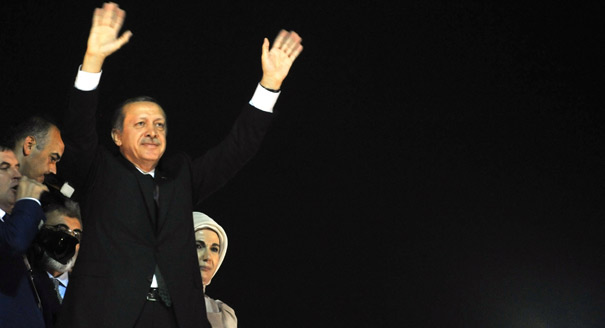Something unusual is happening in Turkey since the beginning of June. For the first time in his brilliant political career, Prime Minister Erdoğan is contested by a huge protest movement. The disproportionately violent reaction of the police to these first peaceful and mostly environmentally motivated protests has only aggravated the situation, because from the time when the force was initially used, the protests have continued in several cities of the country, with new and innovative methods. This situation whereas the prime minister is challenged because of his uncompromising attitude is something disturbing for his Islamist family and allies, confronting them with a real dilemma.
Admittedly the Justice and Development Party (AKP) has always been a sort of a coalition between various political forces with their different sensibilities. Moreover, this rainbow aspect of the AKP was its main force in Turkey, at least until the recent events. The diversity of tendencies was something easy to manage because the ruling party faced few challenges and contestations. However, as the protests are serious and give the impression that they will last, there is a risk of fissuring for the AKP, especially since some of the prime minister’s allies have already expressed their reservations concerning his approach to the crisis.
As early as at the beginning of the crisis, President Abdullah Gül and the Deputy Prime Minister Bülent Arinç softly criticized the attitude of the police, and they even voiced their approval for the right for the people to demonstrate and to express their ideas. Abdullah Gül said, in particular, that democracy is not only about winning elections but it also implies a respect of the minority by the majority, something Recep Erdoğan has still not understood. Another Islamic leader, the charismatic Fethullah Gülen who is at the head of an impressively big community traditionally close and supportive of the AKP policy, has also dissociated himself from the government’s brutality toward the protestors.
The question now is whether this distancing by Erdoğan’s historical allies from uncompromising attitude will affect the AKP and its policy in Turkey. This question is not easy to answer because the protests are evolving every day. However, though without any certainty, we are still tempted to make some broad conclusions. Indeed, Erdoğan allies, Abdullah Gül, Bülent Arinç, and Fethullah Gülen are facing a real dilemma. They do not approve of the harsh attitude adopted by the prime minister, but at the same time they do not want to compromise the reforms initiated by the AKP. First of all, they know that it is very risky for the country to weaken him. The dialog process started with the Kurdistan Workers’ Party (PKK) to resolve the Kurdish issue, initiated by the prime minister himself, is something very important for the country, and if only for this reason they will continue to support him in order to give this historical process a chance for success. Furthermore, they know that despite the continuous protests, the prime minister is still popular. The protestors, though their movement has amplified since early June, still represent only small (and even marginalized) groups of the Turkish society. And last but not least, the AKP apparatus is very loyal to the prime minister, something Erdoğan allies know very well.
